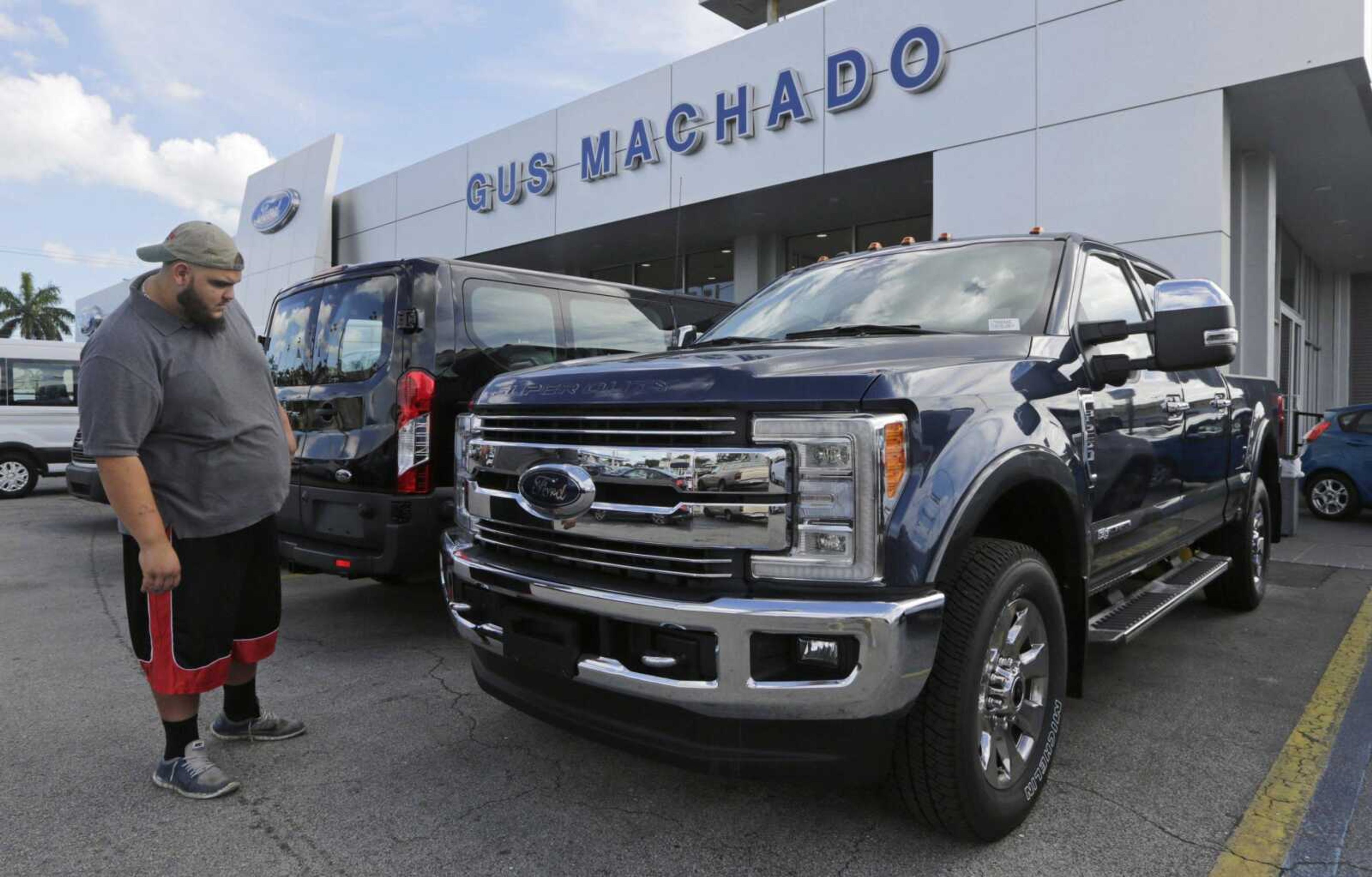Truck, SUV, rental car sales push October auto sales higher
DETROIT -- Fueled by increased demand from rental car companies, strong truck and SUV sales, and recovery from hurricanes in Florida and Texas, U.S. monthly auto sales appear to have posted a surprise increase in October. The increase would be the second straight month for the industry, which before September hadn't posted positive numbers in any month this year...
DETROIT -- Fueled by increased demand from rental car companies, strong truck and SUV sales, and recovery from hurricanes in Florida and Texas, U.S. monthly auto sales appear to have posted a surprise increase in October.
The increase would be the second straight month for the industry, which before September hadn't posted positive numbers in any month this year.
But analysts said even a strong finish to the year won't be enough to match last year's record sales of more than 17.5 million.
Still, the industry should finish 2017 close to the record at around 17 million vehicles.
Ford, Honda, Nissan, Toyota and Volkswagen all reported gains for October, defying expectations buyers would pull back and 0fewer people than expected would replace hurricane-damaged vehicles. Fiat Chrysler and General Motors reported declines, with most automakers posting October numbers Wednesday.
At Ford, sales rose 6 percent due to a big gain in F-Series pickup demand and an increase in sales to fleet buyers such as governments and rental car companies. Nissan sales were up 8 percent on record sales of the Rogue small SUV, which were up 43 percent.
Analysts said Nissan also had a big increase in fleet sales, although the company said sales to individual buyers rose as well. Toyota and Honda each reported gains of about 1 percent, while VW brand sales were up nearly 12 percent.
At Fiat Chrysler, sales dropped 13 percent as a 43 percent cut in fleet sales offset an October record for Ram pickup sales. GM sales fell 2 percent as all four of its brands posted declines.
Most industry analysts had expected October sales to fall after a big increase in September.
But stronger than expected demand for pickups and SUVs, bigger incentives such as cash rebates, and higher sales to big fleet buyers drove the increase, said Jeff Schuster, senior vice president of forecasting for the LMC Automotive consulting firm.
While some fleet sales are profitable, those to rental car companies generally are made at low profit, and that can cut into automakers' bottom lines.
But some companies such as Nissan seemed to go for the higher sales number, said Akshay Anand, executive analyst for Kelley Blue Book.
If history is any indication, November and September will be good months to buy vehicles because companies are likely to raise already high discounts, Anand said.
"If they push with incentives, I think you may see some strong sales months" yet this year, Anand said. "I do think that consumer interest is still strong regardless."
Truck and SUV sales will be 65 percent of new vehicle sales in October, with cars in the 35 percent range, which has been typical for much of the year, said Schuster.
With millions of late-model cars coming off leases into the used-car market and automakers still trying to clear dealer lots of slow-selling cars, it's a great time to get a deal on a less-popular sedan, Anand said.
New vehicle sales also got a bump from replacement of hurricane-damaged vehicles, although Schuster said it wasn't as large as expected because many people bought used vehicles.
Based on data for the first three weeks of October, sales in Florida rose 5 percent as shoppers finished purchases delayed by Hurricane Irma. In Houston, they rose only 3 percent as the recovery from Hurricane Harvey wound down.
Automakers raised discounts on vehicles to an average of $3,901, beating the previous record for October of $3,835 set last year, according to J.D. Power.
But the average sale price, including incentives, rose to an October record of $32,185, as buyers bought more expensive trucks and SUVs and loaded them with options.
Connect with the Southeast Missourian Newsroom:
For corrections to this story or other insights for the editor, click here. To submit a letter to the editor, click here. To learn about the Southeast Missourian’s AI Policy, click here.






